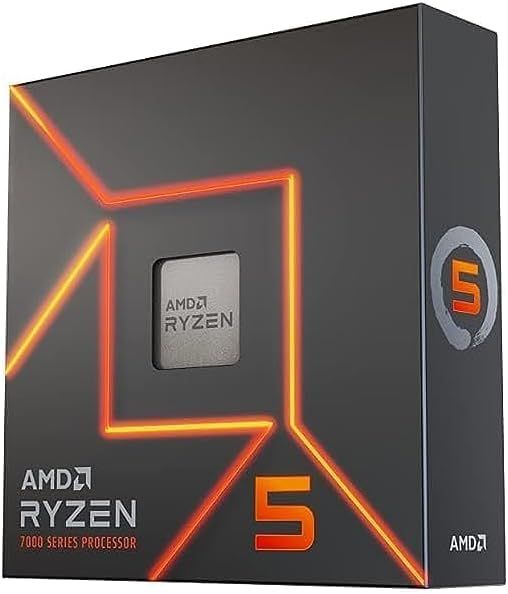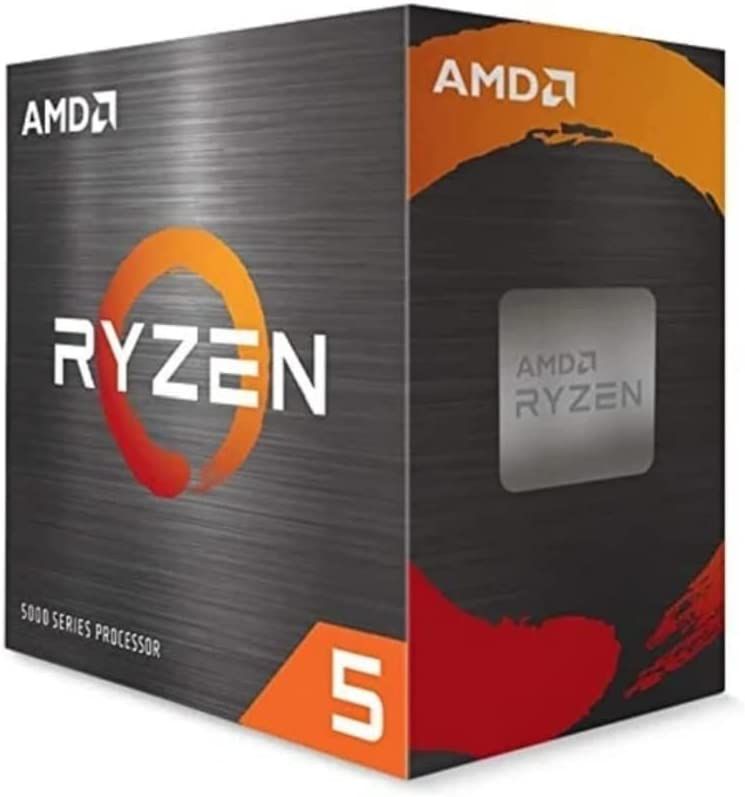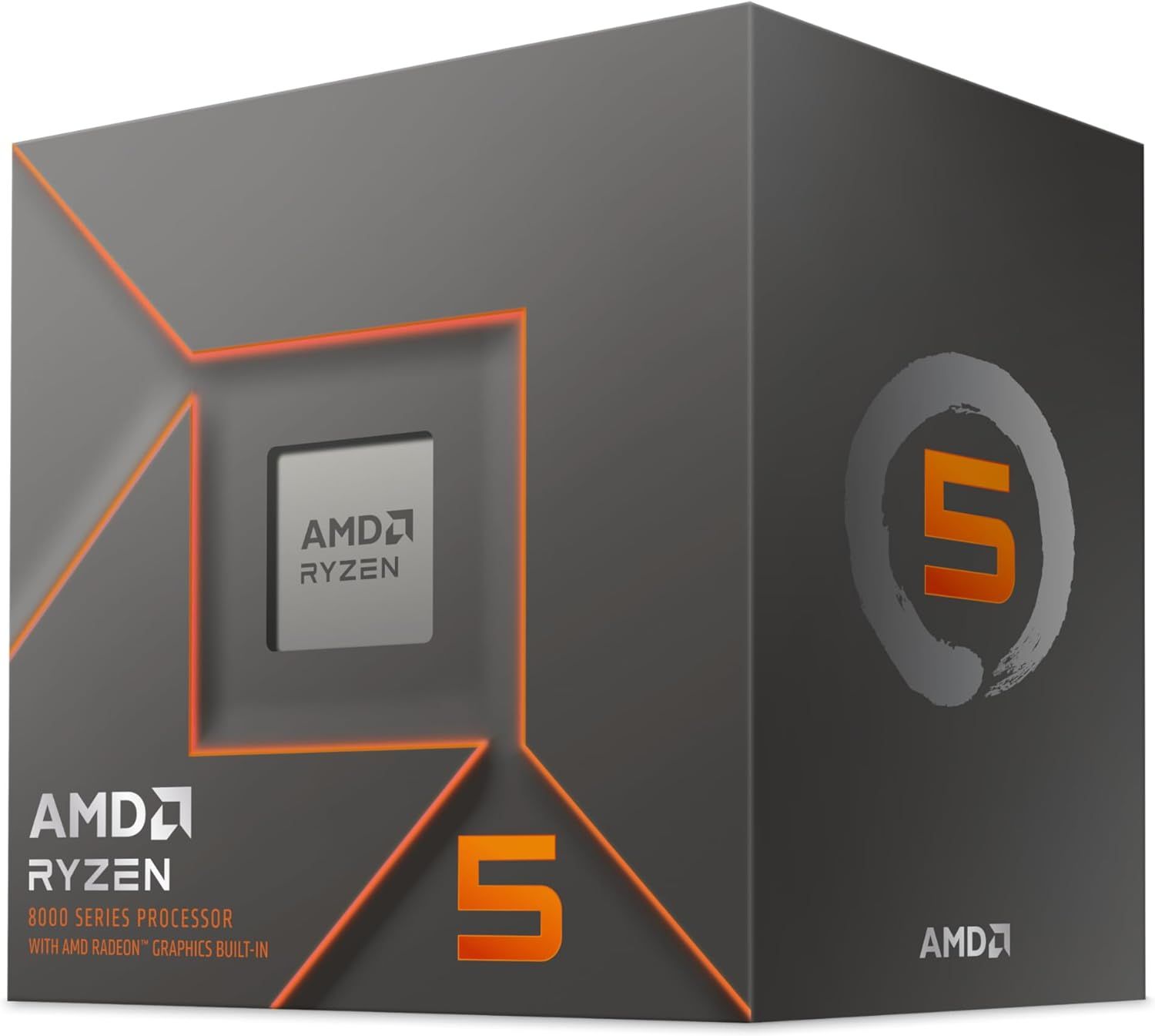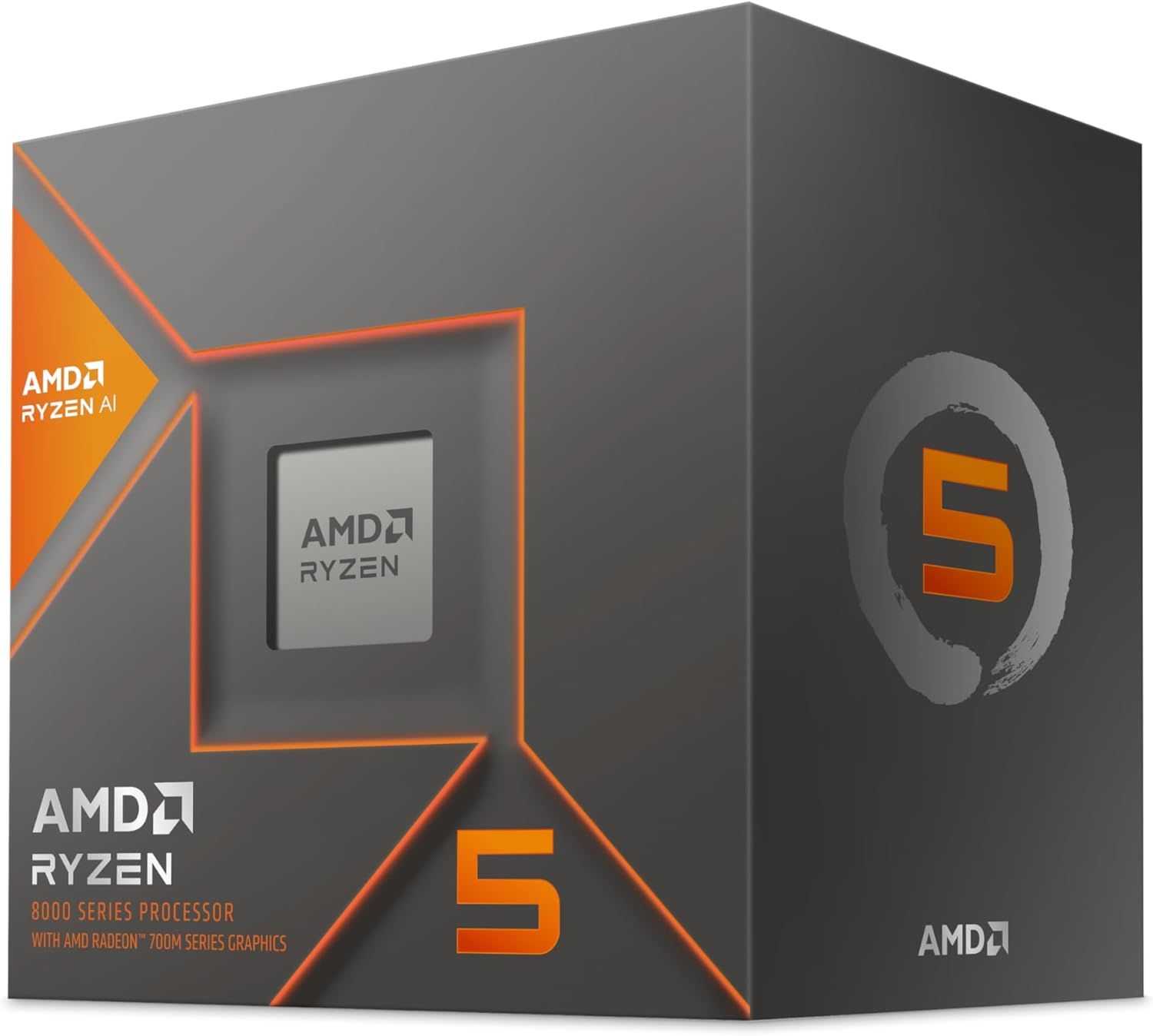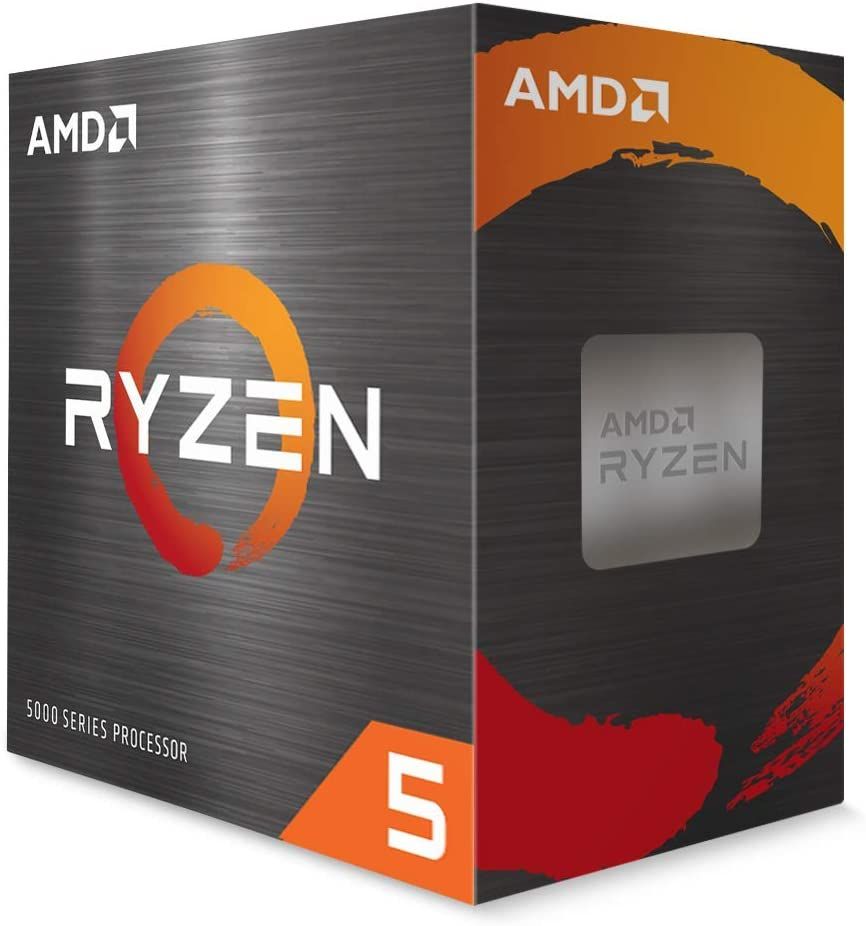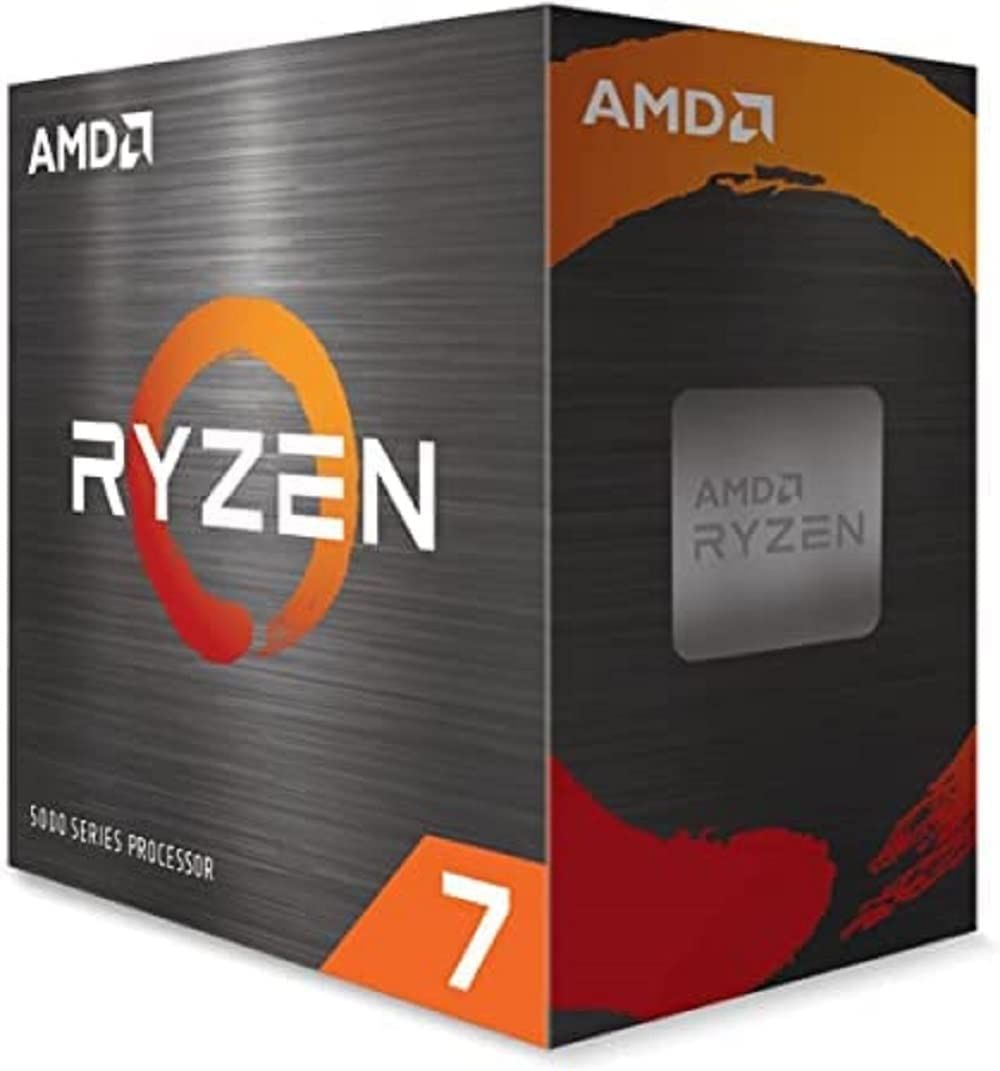AMD is resurgent in 2024 with the launch of its Ryzen 9 and 7 3D-based chips as it looks to take a larger chunk of the processor market, fueled by better value and better gaming performance. With the introduction of more efficient and faster Zen 4 cores, locating the best value when it comes to processors for gaming has been a task with moving goalposts.

The Best Intel CPUs in 2024
Intel has had a strong year, finishing off with the 14th generation of its processor lineup. But how does it stack against itself in 2024?
Luckily, the Ryzen 7000 series and its gaming-centric X3D refresh have received several price cuts that make them considerably more promising in terms of value and price-to-performance ratios even as AMD continues to wear both the efficiency and gaming performance crowns well into 2023. This is partially due to price cuts on Intel's 13th generation CPUs as its unlocked 14th generation CPUs already replace them at multiple price points in the mid to high-end CPU market.
AMD's AM5 Platform: An Expensive Proposition?
At launch, the cost of AMD's AM5 platform was borderline prohibitive thanks to the relatively expensive motherboard options, with DDR5 being an emerging standard as well as the performance scaling based on cooling options that are often not included in most of its unlocked processors, such as the 6-core 12-thread Ryzen 5 7600X. This has improved considerably with the advent of budget AM5 motherboards, cheaper DDR5 memory, and cheaper AM4/AM5 coolers to cater to increased demand. This allows gamers and enthusiasts alike to upgrade at a much lower cost than when the AMD Ryzen 7000 series first came out in September 2022.
The most notable difference is with compatible chipsets with more entry-level B650 and A620 motherboards surfacing. This allows users to benefit from a plethora of features at prices that are significantly lower, even as DDR5 memory matches DDR4 memory prices of late.
What AMD CPU Should I Get For Gaming On A Budget?
When looking for an AMD CPU upgrade or if searching for a new PC build altogether, the following metrics are key to determining if an AMD processor will be good for the task:
Single-Core Clocks: Single-core clock speeds essentially tell us if a CPU is fast for single-threaded performance. Along with instructions per cycle (IPC), it determines how fast game engines, still notoriously dependent on single-threaded performance, get acceptable frame rates in most titles.
Overclockability: Most AMD CPUs come unlocked out of the box, allowing users to push them as they see fit. But even if users pick an unlocked, overclockable CPU, some tend to push clock speeds higher and easier than others, allowing for more performance to be unlocked with adequate cooling and a good motherboard.
Extended L3 Cache/X3D: AMD's X3D CPUs leverage its 3D V-Cache to ensure plenty of L3 cache is available to the CPU, allowing it to perform particularly well in most games compared to standard CPUs. While this has limited gains in most productivity use cases, it does make a massive difference when it comes to most modern game titles that can leverage the extra L3 cache for faster in-game performance.
Number of Cores: While the number of cores in most AMD CPUs starts at four or higher, most modern games require at least six cores as games become increasingly complex and require more parallel computing power, even as both modern comparable consoles house eight-core custom AMD APUs.
Game ZXC's Picks for the Best Budget AMD Gaming CPU in 2024
The AMD Ryzen 5 7600X 6-Core 12-Thread CPU is an excellent hexacore offering that delivers some of the best single-core performance that the Ryzen 7000 series lineup has to offer. It comes in at an interesting post-sale price that dethrones the Ryzen 5 5800X3D in a close finish to become the best budget AMD CPU for gaming on our recommendations list.

Best CPU For Gaming: AMD Ryzen 9 7950X3D vs Intel Core i9 13900KS
AMD's latest offering takes the gaming crown from Intel, but is it worth your consideration in this matchup of efficiency versus brute force?
Thanks to the price cut, it has emerged in the sub-$250 range with cheaper DDR5 RAM in tow. As a result, the 7600X is now a much more viable choice than it was in 2022 and 20223. It does get rid of the stock cooling option that its cheaper, lower-clocked Ryzen 5 7600 siblings come with, but bundling a cheap liquid cooler should fix that issue while commanding a respectable price point.
The AMD Ryzen 5 5500 is not exactly a winner at first glance. It seems to be an inferior Ryzen 5 5600 thanks to lower clocks and half the L3 Cache while being limited to PCI-E 3.0 speeds. With its conservative clocks and boost speeds, one could argue that it is a cheap Hexacore Ryzen 5, and that would be a fairly correct assumption. It does, however, not paint the complete picture given its unique value proposition.
It does offer Zen 3 cores (much like all of its more pricey siblings) and a minor performance edge over its last-gen equivalent, the Ryzen 5 3500X/3600. It also offers reliably decent multicore performance and an adequate stock cooler. However, it takes a beating in some titles, primarily due to its relatively low clocks affecting single-core performance. Still, the Ryzen 5500 is hardly 5-10% slower than the $50 more expensive 5600X, which makes it a more valuable budget CPU than the latter.
For a long time, AMD didn't release any Zen 4-based APUs for its AM5 platform, letting the Ryzen 5000 APUs carry the task of graphical loads. However, APUs such as Ryzen 5600G or 5700G are incapable of providing a satisfactory performance in modern games while costing as high as the best budget and mid-range CPUs from Intel and AMD. Thankfully, the time for the wait is over. By launching the 8000 series, AMD fulfilled its promise to bring Phoenix APUs to the desktop, which replaces the Zen 3 APU lineup.
There are a couple of solid APUs in this lineup and the only one that competes with the Ryzen 5600G and 5700G in terms of pricing is the Ryzen 5 8500G. It brings two Zen 4 and four Zen 4C cores to bring a total number of six cores with hyperthreading enabled. The clock speeds are also good, but despite not being able to match its higher-end siblings, it manages to dominate both Ryzen 5600G and 5700G by around a 30% margin in gaming.

Intel vs. AMD: Which CPUs are better?
Trying to choose between an Intel or AMD CPU? Here's our comparison of how they break down against each other!
This is possible due to its improved architecture, and higher clock speeds, as well as the onboard Radeon 740M graphics unit, which brings four graphical cores clocked at 2800MHz. Capable of playing a lot of games on medium settings with 30+ fps, the Ryzen 5 8500G is a perfect solution for budget gaming builds, which won't require a discrete GPU. However, if users do add a discrete GPU in the future, it's not recommended to go with higher-end GPUs as the 8500G can manage to provide only four PCI-E 4.0 lanes.
The Ryzen 5 8600G is a little expensive but a much better offering than the 8500G. It doesn't boast any major flaws like the latter, which makes it a far better choice for future-proofing a gaming build. It is built using only Zen 4 cores, resulting in higher base clock speeds and better performance out of the box. A 6-core/12-thread configuration is what users will get that doesn't cut the PCI-E lanes for the graphics cards and M.2 SSDs.
What it means is that the Ryzen 8600G won't limit high-end graphics cards such as RTX 4090 in bandwidth as it provides eight PCI-E lanes for the GPU instead of just four. Furthermore, it gives four PCI-E lanes for the M.2 SSD, which doesn't slow down high-end NVMe SSDs. The Ryzen 8600G, thankfully, isn't just limited to these improvements but rather brings a faster iGPU onboard. With the Radeon 760M iGPU, it provides twice as many GPU cores as the 8500G, resulting in at least a 20% performance jump on average. All in all, not only is it a superior choice for building a gaming PC without a discrete GPU, but it is also a better option for adding a discrete GPU to the build in the future.
The AMD Ryzen 5 5600X 6-Core 12-Thread CPU is AMD's go-to processor in the Ryzen 5000 series and essentially a replacement for the wildly popular Ryzen 5 3600 processors. Given that it trades close to the sub-$150 price point lately, it is a no-brainer for our best-budget gaming processor. It should meet most video game requirements with ease for the next few years.

The Best CPUs To Pair With The RTX 4060 TI For Gaming
The RTX 4060 TI has been released to mixed reception. But What CPUs should you aim to pair it with to maximize your gaming performance?
Unlike the 5600G which is around the same price tag, it has slightly better clocks, twice the L3 cache, and PCI-E 4.0 support out of the box, making it the CPU you want to pair with a discrete GPU. The 5600X is comparable in performance directly with the Intel Core I5-12400 or 12400F which is no mean feat for an AMD CPU that was until the last few years playing catch-up to Intel. All in all, the hexacore chip is an extremely versatile processor that should remain a mainstream CPU in terms of performance targets for the foreseeable future and will be featured in many budget-centric PC builds.
Almost every CPU till now features a 6 core/12 thread configuration which kinda limits the potential of those CPUs in multitasking and productivity. However, with the Ryzen 7 5700X, faster productivity and better multitasking is possible without spending over $200. The Ryzen 5700X is not only one of the very few CPUs to feature 8 cores for a low price, but is also one of the most popular gaming CPUs at the moment.
Although it doesn't provide any drastic uplifts in gaming performance over the Ryzen 5600X, it does give 2 additional real cores for just $20-$25 more. All of this while retaining the TDP of 65W which will result in a powerful yet power-efficient gaming PC. Being overclockable, users will have the ability to further enhance the performance by tweaking the voltages or clock speeds through the BIOS or Ryzen Master software. However, the CPU comes with no stock cooler and will require a decent CPU cooler if overclocking is one of the primary goals.
FAQ
Q: Is an AM4 or AM5-based processor preferable?
Buyers should consider how much they can afford to splurge on the accompanying motherboard and memory. EXPO DDR5 memory and AM5-based motherboards cost many times more than their DDR4 and AM4 counterparts currently and for a good reason. They are bleeding edge technology. If the ability to upgrade is important, one should consider getting an AM5 processor. If a cost-effective build is a priority, AM4 might be the way to go.
Q: What is the best overall budget gaming processor from AMD?
While there are multiple contenders for gamers on a budget, the AMD Ryzen 5 7600X hexacore processor pulls ahead comfortably thanks to its current price cut and formidable gaming-specific performance offerings.
Q: What is the best gaming CPU on a budget?
Users aiming for a gaming CPU under $500 that will be relevant for the foreseeable future should consider the AMD Ryzen 7 7800X3D, which is currently the fastest CPU for gaming and offers significant power efficiency.


